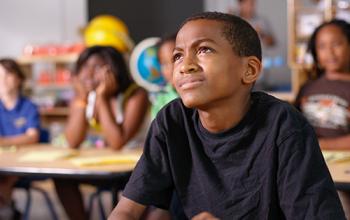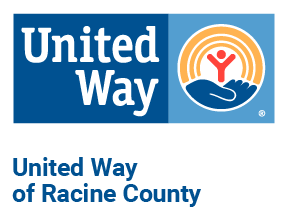 Jul. 16, 2017—While the U.S. economy continues to recover from the Great Recession, there are things to celebrate, most notably the drop in unemployment. Unfortunately, the kind of gains seen by some groups in certain parts of the country are not experienced equitably by everyone. While the nation moves forward, a large percentage of the U.S. population continues to be left behind, including here in Racine County.
Jul. 16, 2017—While the U.S. economy continues to recover from the Great Recession, there are things to celebrate, most notably the drop in unemployment. Unfortunately, the kind of gains seen by some groups in certain parts of the country are not experienced equitably by everyone. While the nation moves forward, a large percentage of the U.S. population continues to be left behind, including here in Racine County.In 2015, the Black unemployment rate in the City of Racine was 16 percent, twice the White unemployment rate of eight percent and the Hispanic unemployment rate was just over 13 percent. While unemployment rates declined in 2016, racial disparities have persisted over time. The infant mortality rate for all women in the City of Racine, regardless of race, is consistently higher than county, state, and national rates. Though it has improved, the rate for Black mothers still outpaces that of Hispanic and White mothers. Locally, graduation rates for Black and Hispanic students attending Racine Unified schools have improved over time, but more work needs to be done.
This reality has consequences. It negatively impacts the education, health, and financial stability of our community. Research tells us that inclusive communities—where prosperity is shared equitably across racial and socioeconomic lines—are more successful communities.
At United Way of Racine County, we determine everything we do—from our initiative work to our funding decisions—on available data, including what we hear from the community during our Community Conversations. What the data clearly demonstrates, and what we have heard, is that more often than not Blacks and Hispanics experience some of our biggest economic and social challenges.
United Way works with an incredible group of community partners to build an educated workforce. We do this by focusing on what we consider to be the building blocks of a good life: education, income, and health. Too often, quality access to these resources is out of reach for the Black and Hispanic communities.
This is why United Way of Racine County, along with other United Ways throughout the nation, chose to focus much needed attention on the issues of race, equity, and inclusion. United Ways have never shied away from tough issues. This is why we have held a number of Community Conversations with diverse groups of people during the past several months in order to hear the community’s thoughts on race and equity. These conversations are intentional, kitchen table-style discussions focused on capturing the concerns, aspirations, and solutions related to these difficult issues.
We’re also engaging another group of community partners—including Higher Expectations for Racine County, the Johnson Foundation at Wingspread, the Racine Police Department, and the Racine Unified School District, among others—to help address the issues that arise from systemic racial disparities in our community.
Higher Expectations for Racine County was founded on a simple idea: Those who care about our community’s future—from parents and educators to civic leaders and local employers—can accomplish more by working together, aligning efforts, and sharing data.
Higher Expectations is working to build a fully capable and employed workforce here in Racine County. In order to accomplish that vision, we work from early childhood through post-secondary education and employment, with the goal of ensuring that every student—regardless of race, zip code, age, or family income—can succeed.
This year, Higher Expectations in partnership with United Way of Racine County, the Racine Police Department, the Racine Unified School District, and the Johnson Foundation, organized a local effort—“Race, Equity and Inclusion: A Leadership Program to Accelerate Results in Racine”—that brought 30 community leaders together to explore the complex challenges of race, equity, and inclusion and develop action plans targeting the elimination of racial disparities from employment back through early childhood.
Together, United Way and Higher Expectations are learning more about how the community views these issues: people want to live in a community that’s inclusive, safe, and has a positive relationship between its citizens and law enforcement; they believe equal opportunity should exist for all races in the areas of education, jobs, and housing; and participants would like to learn more about and work to directly and effectively address the racial and ethnic disparities in our community.
Later this month, Tiffany Jana will be the keynote speaker at United Way’s Community Conversations Report Out event on July 25, where a report will be released sharing results from the most recent round of Community Conversations. Jana, co-author of “Overcoming Bias: Building Authentic Relationships across Differences” will discuss her work in the area of diversity and inclusion management.
United Way of Racine County fights for the health, education, and financial stability of every person in our community by forging partnerships with groups like Higher Expectations to mobilize the best resources, find new solutions to old problems, and inspire individuals to join the fight against a common foe: our community’s most daunting social crises. To live better, we must Live United.
Rodney Prunty, president, United Way of Racine County
Jeff Neubauer, executive director, Higher Expectations for Racine County

Website by: OneEach Technologies
Sitemap | Login